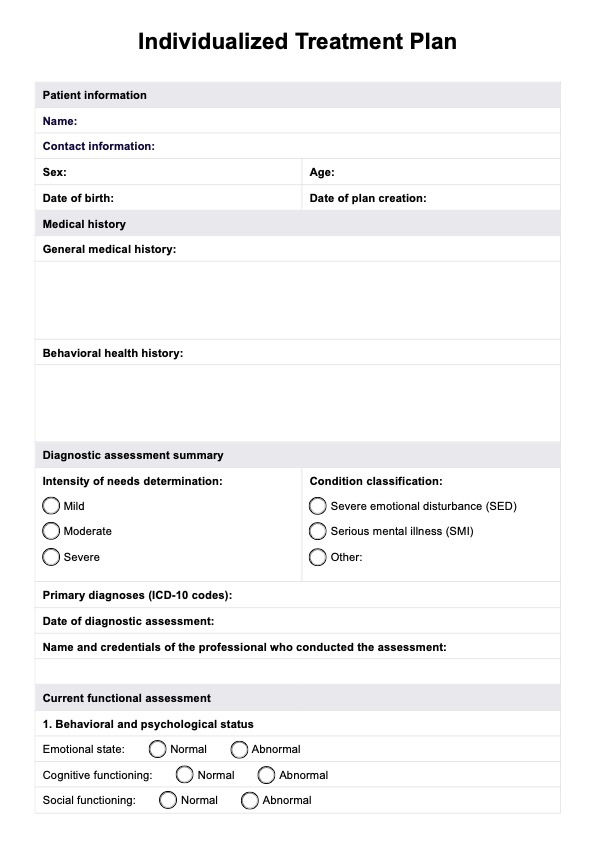An Individualized Treatment Plan (ITP) is a customized plan developed by healthcare professionals to address a patient's specific needs, focusing on their mental, emotional, and physical health. It outlines treatment goals, strategies, and services tailored to the patient’s unique circumstances.

Individualized Treatment Plan
Discover the importance of individualized treatment plans and get a free PDF download example to help create personalized care plans for patients.
Individualized Treatment Plan Template
Commonly asked questions
Example goals for a treatment plan may include improving a patient's mental health by reducing symptoms of anxiety or depression or enhancing their physical health by managing chronic pain. Other goals could involve improving social functioning or achieving sobriety for patients recovering from substance abuse.
Healthcare professionals, including mental health professionals, doctors, and therapists, use Individualized Treatment Plans to guide patient care and ensure personalized treatment. It is commonly used by those managing mental health conditions, substance use disorders, or physical health concerns.
EHR and practice management software
Get started for free
*No credit card required
Free
$0/usd
Unlimited clients
Telehealth
1GB of storage
Client portal text
Automated billing and online payments











